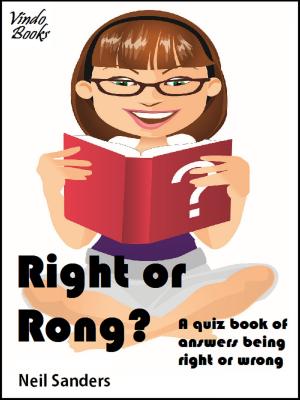Spelling: Behind the scenes
From the history of English to misspelled words of today
Nonfiction, Reference & Language, Dictionaries, History, British, Study Aids| Author: | Stephen Worthing | ISBN: | 1230000189239 |
| Publisher: | Vindo Books | Publication: | October 8, 2013 |
| Imprint: | Language: | English |
| Author: | Stephen Worthing |
| ISBN: | 1230000189239 |
| Publisher: | Vindo Books |
| Publication: | October 8, 2013 |
| Imprint: | |
| Language: | English |
We all know spelling is a correct sequence of letters that together create words, and phonetic spellings are exceptions to this within many languages for numerous reasons. Pronunciation changes over time for all languages, and spelling reforms are irregular in a majority of languages and very rare in others. Also words from other languages can be adopted without being adapted to the spelling system of that language, non-standard spellings are often adopted after common usage by the public, and different meanings of a word or homophones can be deliberately spelled in different ways to differentiate them visually.
Minority languages and regional languages often lack the similarities of uniformity of spellings found in standard languages of today, and official languages that prescribe standard spellings. In countries like America and the United Kingdom, without official spelling policies, many vestigial and foreign spelling conventions can work simultaneously. In countries with a national language maintenance policy, such as France, Germany and the Netherlands, reforms were made to make spelling a better index of pronunciation. Spelling usually evolves because of simple reasons of alphabetic thrift, as when British English words become American English.
English dictionaries now contain a large quantity of words taken from foreign languages, notably French. Most maintain their original spelling or may be slightly altered for the transition into English. In many respects, retaining the original spelling is important as it reflects the origins of a word and hence adds extra emphasis to its meaning.
This book feeds you with English knowledge, of how this universal language came about and where it has reached today. From learning where words originated from to advice on how to read fast and common misspelled words, etc.
We all know spelling is a correct sequence of letters that together create words, and phonetic spellings are exceptions to this within many languages for numerous reasons. Pronunciation changes over time for all languages, and spelling reforms are irregular in a majority of languages and very rare in others. Also words from other languages can be adopted without being adapted to the spelling system of that language, non-standard spellings are often adopted after common usage by the public, and different meanings of a word or homophones can be deliberately spelled in different ways to differentiate them visually.
Minority languages and regional languages often lack the similarities of uniformity of spellings found in standard languages of today, and official languages that prescribe standard spellings. In countries like America and the United Kingdom, without official spelling policies, many vestigial and foreign spelling conventions can work simultaneously. In countries with a national language maintenance policy, such as France, Germany and the Netherlands, reforms were made to make spelling a better index of pronunciation. Spelling usually evolves because of simple reasons of alphabetic thrift, as when British English words become American English.
English dictionaries now contain a large quantity of words taken from foreign languages, notably French. Most maintain their original spelling or may be slightly altered for the transition into English. In many respects, retaining the original spelling is important as it reflects the origins of a word and hence adds extra emphasis to its meaning.
This book feeds you with English knowledge, of how this universal language came about and where it has reached today. From learning where words originated from to advice on how to read fast and common misspelled words, etc.















